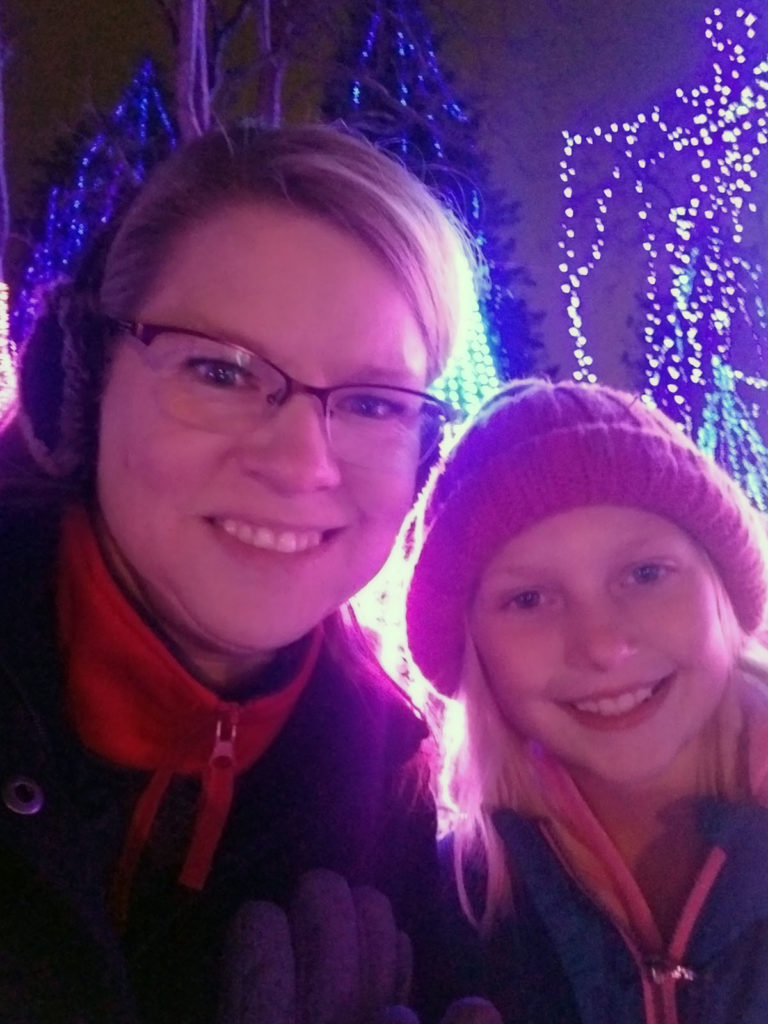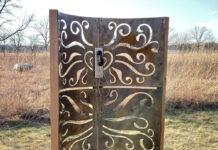Every year, dozens of Mankato area youth find special relationships through the YMCA’s Brother/Sister program.
Community members can volunteer to become mentors (or “big brothers/sisters”) to kids who need a little care. After being paired up, the two individuals will meet for a few hours every week to explore all sorts of different interests. The relationships are as unique as the individuals involved, but there’s a consistent theme of growth, encouragement and care. Mentor/mentee pairs often cultivate a relationship that lasts long after they’ve “graduated” out of the program.
Mentors come from all walks of life, from college students to retirees. But they’re all committed to making a positive impact in the lives of their mentees. For mentors Joy Wels and Courtney Kranz, though, there’s one more special thing in common: they’re mother and daughter.
Joy became a mentor first, after YMCA Program Coordinator Cheryl Hamond visited her workplace to speak about the program in 2011. She first joined the YMCA’s School-Based Mentoring Program, which pairs mentors up with public school students for one hour a week. Eventually, she transferred to the Community-Based Brother-Sister Mentoring. Along the way, she has been matched with five youths, including her current mentee, Kyra, an 11-year-old 5th grader who has been Joy’s “little” for the past five years.
My 5-year anniversary came up last year, and they told me how many hours I’d given… It just kind of dawns on you how much of an impact you’ve had, not only on your youth but also how you’ve grown yourself, as well as giving back to the community….Courtney Kranz
Meanwhile, Joy’s daughter Courtney got involved with the program as a freshman at MSU-Mankato in 2013. She was part of a sorority that required community service hours, and her mother suggested checking out the School-Based Mentoring Program. After working with a few youths through that program, she transferred over to the Community-Based Program. She has been with her current “little,” an eleventh-grader named Lucy, for almost four years.
Throughout their years in the program, Joy and Courtney have been dedicated to cultivating strong relationships with their littles and helping them navigate life. They’re also dedicated to spreading the word about the YMCA’s mentor program to “end the wait” so that more kids have a chance to find their own big brothers and sisters. They sat down with MankatoLIFE to share their stories.
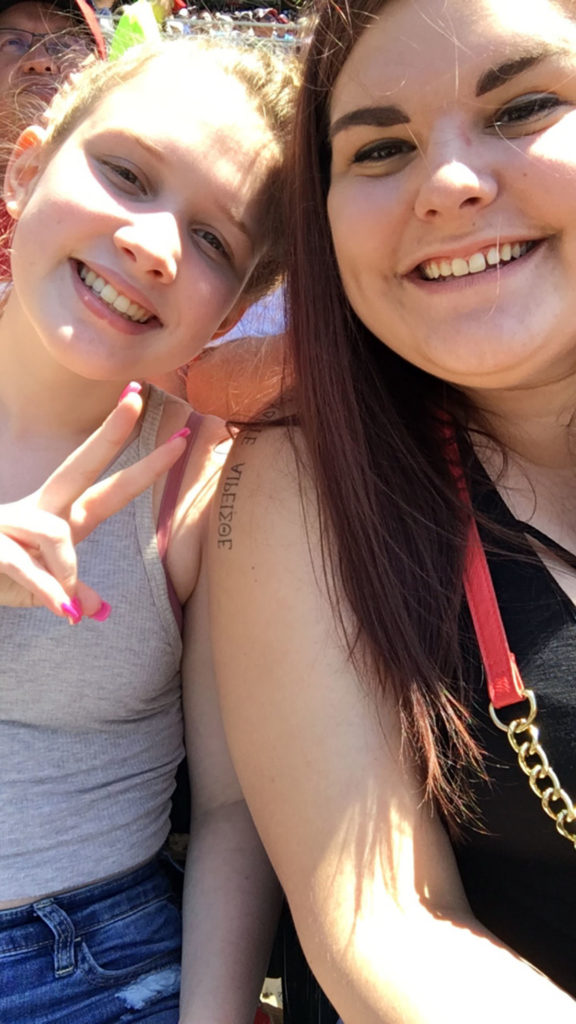
What made you decide to become involved in the Brother-Sister Mentoring Program?
Joy: There’s a shortage of mentors right now, and Cheryl talked about connecting kids to school-based mentors until they were assigned [community-based] mentors. I thought it was a great idea. I raised my kid and did a fairly good job, so I thought I could probably be a positive influence on another kid.
Courtney: I’d just joined a sorority and needed volunteer hours, and my mom mentioned this program.
How does community-based mentoring compare to school-based mentoring?
Joy: With community-based, you have unlimited free range [of when to meet and how long], so that’s one of the nice things. Now, I can see my youth for 2-3 hours or we can spend the day up at the Mall of America. We don’t have to take that three-month break during the summer months. Community-based is a lot better even though it’s a time commitment. That 2-3 hours really isn’t that big of a difference (commitment-wise), and it gives you the ability to be able to take the youth to do other things. My child, she’s experiencing a lot of “firsts.” She has gone to her first concert, and gone to Minneopa Falls for the first time; she did her first 5K with me earlier this year. She’s getting those first experiences that otherwise wouldn’t have happened because of her situation.
Courtney: When I was in the school, having a mentor was kind of seen as cool, and kids wanted to show you off to all their friends. So you’re hanging out with them and their friends; you aren’t getting to interact so much with them one-on-one. The youths still wanted to be with their peers. Now, I can interact with Lucy one-on-one. We get those short days where we might just go get lunch or go to a movie, and those long days where I’m spending 8-9 hours with her being up at the Mall of America. There’s that different trust that you gain with them between the two programs. Plus, with community-based, you’re having to go the three months without talking to them, especially if something impactful happened during their summertime.
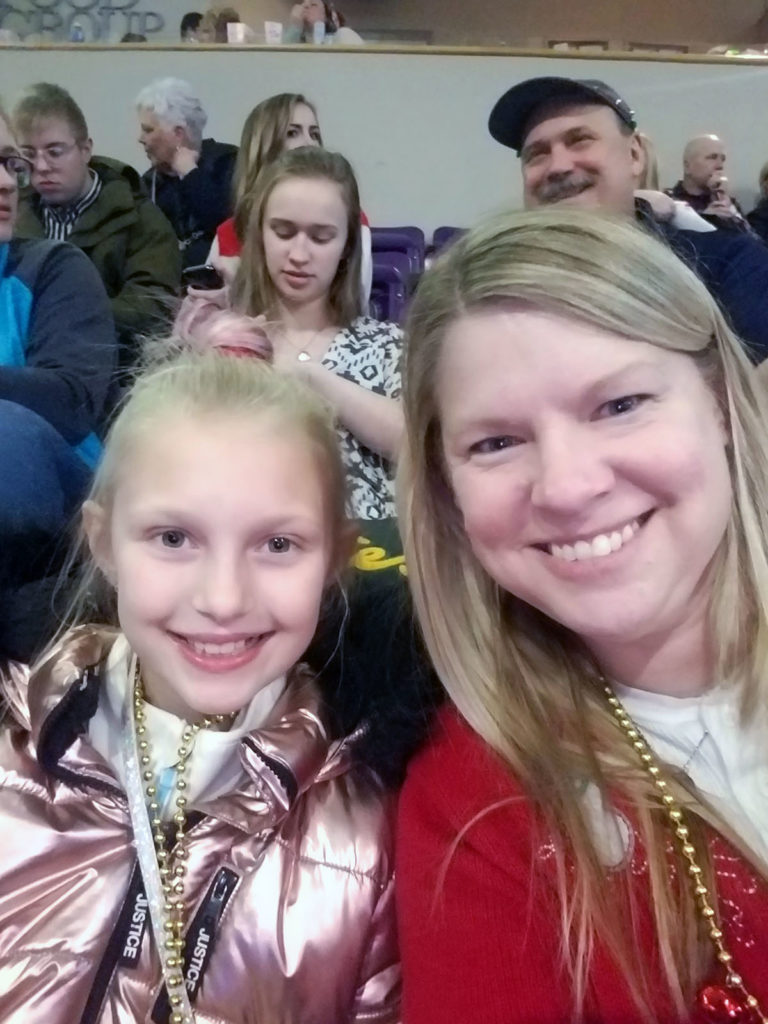
Tell us about your “littles” and what you enjoy doing together.
Joy: Kyra’s favorite thing is doing crafts. I have a room designated as my craft room, and we have a table set up with all our stuff, and we’ll leave it there for next time. I wouldn’t say that we have two visits that are alike; we’re always trying new things. We do YMCA group activities once in a while, and have gone to see concerts here in town. We [also] like just hanging out and talking, and I’m teaching her things. I taught her some household projects while I was remodeling my attic, and she helped. It was funny, because she said, ‘Well, it’s important for me to learn how to do this stuff, because girls can be construction workers too.’ It’s great to be that positive role model in her life.
Courtney: We do a bunch of different things. She likes going to B-dubs (Buffalo Wild Wings), seeing movies, going to Twins games… We have similar likes, but also opposite. At first, she wasn’t really artistic or into crafts, but I’m a huge artsy person. We slowly filled that gap. There are still some gaps, like she really likes Bdubs, and I was not much of a Bdubs person, but it’s slowly growing on me.
We communicate even when we’re not hanging out; we’ll snapchat or message each other. Growing up [without siblings], there wasn’t that person that I feel I could have that close connection with, who understood what I was going through. I feel like Lucy understands that. She can vent to me, and I can talk to her also. It’s just reexperiencing all the high school stuff and helping her get through it based on what worked best for me. Having the closeness of age, I think she sees me more as a sister than a mentor, because she confides in me about different struggles she has in home or school.
I think it’s just a matter of taking that leap of faith, knowing that, yes, it is a long process in the beginning, but not to get discouraged.Joy Wels
What’s your favorite thing the two of you did?
Joy: Kyra and I attended a Taylor Swift concert [thanks to complimentary tickets from the YMCA] in 2018. She and I were both able to get out of our shells. Just capturing on video her initial reaction to the concert… you can’t remake that kind of stuff. She really liked the blow-up snake that was used in the concert, so I’d like to take her to the zoo to introduce her to real snakes, to see if she has as much love for real snakes as she had for the blowup one.
Courtney: Right after we got into community-based mentoring, we went to the Mall of America and did the rides at Nickelodeon Universe. I hadn’t really been on some of them before, and I was terrified of “Rock Bottom,” [a rollercoaster] that goes straight up and upside down, because I’m not a rollercoaster person. Lucy kind of pushed me to go onto that ride with her, where I made her push herself out of her comfort zone to try the ziplining and trapeze stuff. That was probably the most fun that we had on my side, because we spent the whole day together, and she tried new things and I tried new things. She’s trying to get me to go to Valley Fair now… We’re working our way there.
How has your youth grown and changed in the time you’ve been paired up?
Joy: Kyra is 11 now, and all of a sudden, she’s learning more. Seeing her mature into a young woman is kind of exciting. We had one time that I had to act like a mother to her… I went to pick her up for horseback riding for the first time, but she was being a little pain in the butt to her mom; she was off on her bike and wouldn’t come home. Finally, I walked down the street and told her, “I took time out of my day to come see you. Get back home and let’s go. You’re being very disrespectful to me.” I didn’t drop it once we left; we talked about, “Why were you acting that way? Do you think it was appropriate? What do you think the appropriate action is now?” It’s kind of nice having those conversations so that she doesn’t end up being a troublesome teenager, because those are going to be the next years.
Courtney: For Lucy, her attitude has definitely changed. When we were first paired, she was really rebellious—getting into fights, getting suspended. When I got her my second week, she got into a fight and I wasn’t able to see her. But throughout the years, she kind of got an attitude adjustment. She used to have a really negative view on what school was, like, “I don’t want to do this, I’m not going to go to college.” Now in 10th grade, she hasn’t been in fights for a couple years, and she wants to go to college to either be a doctor or lawyer. So she definitely has a different view on her school. For the most part, she has pretty high grades and likes to stay on top of stuff.
I think the biggest influence for her was that she kind of realized what friends actually are, and who’s a friend to her. She’s gotten rid of those toxic people who weren’t good for her and surrounded herself with people who will actually be there for her.
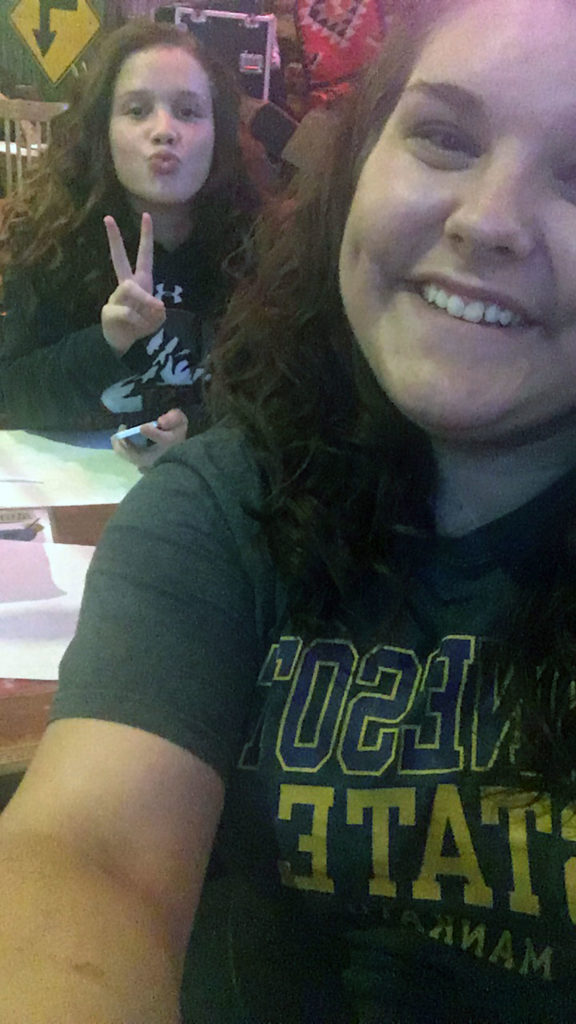
How have you grown personally during your time in the program?
Joy: I think the one thing that I’ve kind of grown or noticed is just my level of patience, that I still can be patient with younger kids. Just learning that I can sit back and hang out with them. Even when I’ve had ones who were early preteens, knowing that I can relate to them in some way or another, or build that bond, that’s been the biggest thing for me—knowing that I’m still contributing to somebody’s life, even though my child’s not at home anymore. I’m making a difference in someone’s life.
Courtney: I think the impact that it has had on me is just more maturity. Especially since I started it coming out of high school, being 17 years old, being a mentor to someone way younger than me was definitely a wake up call, like, “Okay, you’ve got to start behaving like your age and grow out of that high school mindset.” And just watching what my actions are, like with having Lucy on my Snapchat, I’m not posting anything that would be toxic for her to see.
What do you think about being a mom-daughter duo in the program?
Joy: I was proud of Courtney [for volunteering]. I thought that she’d be a great candidate for the Brother-Sister program. I’m glad that Courtney is sticking with her youth. I feel like I did a good job raising my kid, and therefore I think she can be a positive role model on somebody else’s life.
Courtney: [My mom] is the one that got me inspired to do it, and I usually follow her footsteps. It’s just been nice to know that with me being out of home, she can still give a child knowledge and attention. Even with her busy schedule, she’s still able to give back in the community, and that definitely inspired me to do it as well. I had a busy schedule too, with school and multiple jobs. She’s been a driving force for me, knowing that if she can do it, I can do it as well, no matter what struggles may come my way.
